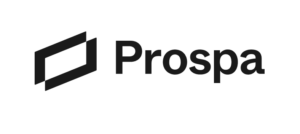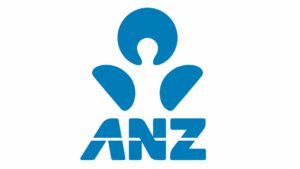Disclosure: This post contains sponsored links whereby we may receive a commission for any purchases made. The following is general information only and should not be considered financial advice.
Running a small business in New Zealand means juggling a hundred priorities at once, managing inventory, keeping customers happy, and yes, making sure the cash flow doesn’t dry up. Whether you’re expanding into a new location, upgrading equipment, or simply riding out a slow season, access to the right financing can make or break your momentum.
The good news? New Zealand’s lending landscape has evolved dramatically. Gone are the days when your only option was a lengthy bank application that might take weeks (or months) to process. Today, small business owners can choose between established banking institutions offering structured, long-term loans and nimble alternative lenders promising same-day funding with minimal paperwork.
This guide breaks down the best small business loans available in New Zealand, covering everything from secured and unsecured options to interest rates, eligibility requirements, and how to actually get approved, even if your credit history isn’t perfect. Let’s immerse.
Top Business Loan Providers For NZ Businesses in February 2026
Prospa

Prospa is a leading online lender offering quick, straightforward financing solutions tailored specifically for small businesses in New Zealand. With loan amounts ranging from $5,000 to $500,000, Prospa enables business owners to access the capital they need without the traditional red tape of banks. The application process is user-friendly, taking just minutes to complete, and approval can often be granted the same day, with funds available within 24 hours. Prospa offers flexibility in repayment terms, allowing businesses to choose from a variety of schedules that align with their cash flow, making it an ideal partner for businesses looking for fast and hassle-free funding.
Pros:
Speed and Convenience
-
Prospa’s application process is quick and easy, with online forms taking around 10 minutes to complete. Once submitted, many borrowers receive approval the same day, with funds disbursed in as little as 24 hours. This is perfect for businesses that need immediate access to capital.
-
No Collateral for Smaller Loans
For loans under $150,000, Prospa doesn’t require upfront security, making it accessible to a wider range of businesses, including those without significant assets to pledge. -
Transparent and Competitive Rates
Prospa calculates interest rates upfront, so borrowers know exactly what they’re committing to. There are no hidden fees or surprise charges, which is often a concern with traditional lending institutions. -
Flexible Loan Terms and Repayment Schedules
Loan durations range from 3 months to 3 years, and businesses can choose a repayment schedule that fits their cash flow, with options for daily or weekly payments. -
Support for a Range of Business Needs
Whether you need funding for growth, purchasing equipment, or managing cash flow, Prospa loans can be used for a wide variety of business purposes, offering great flexibility in how funds are allocated.
Cons:
-
Limited Loan Amounts
While Prospa provides loans from $5,000 to $500,000, businesses needing larger sums may find these limits restrictive. In such cases, they may need to consider other lenders who offer higher loan ceilings. -
Strict Eligibility Criteria
To qualify for a Prospa loan, businesses must meet certain criteria, such as being in operation for at least six months and having a minimum monthly turnover. These requirements may exclude newer businesses or those with lower revenues from accessing funds. -
Variable Interest Rates
Prospa’s interest rates are variable, meaning they can fluctuate depending on market conditions. This could lead to changes in the repayment amounts, which may not be ideal for businesses looking for fixed costs over time. -
Not Ideal for Personal Loans
Prospa is focused on business financing, so it does not offer personal loans. Entrepreneurs looking for funds for personal purposes will need to explore other lending options. -
Higher Interest Rates for Smaller Loans
While Prospa offers competitive rates overall, businesses applying for smaller loans may face higher interest rates compared to larger loan amounts, which can make smaller loans less affordable.
Prospa’s rapid funding process, flexible terms, and transparent approach make it an attractive option for New Zealand’s small business community. However, like any financial solution, it’s important to carefully evaluate its loan limits and eligibility requirements before applying to ensure it aligns with your business needs.
Traditional Bank Options
ANZ Business

ASB Bank

ASB Bank, a prominent financial institution in New Zealand, offers a wide range of banking services, including personal accounts, business banking, home loans, and investment options. With a reputation built over decades, ASB serves millions of customers through its network of branches, online banking, and mobile app. However, while many users have praised the convenience and features of ASB’s services, others have voiced significant frustrations related to customer service, technical issues, and internal mismanagement.
Pros:
- User-Friendly Mobile App & Online Banking: ASB has won recognition for its user-friendly mobile app and efficient online banking experience. Many customers praise the app’s ease of use for common banking functions such as money transfers, balance checks, and bill payments. The digital experience, which was created with user accessibility in mind, has established a high standard in the banking industry.
- Strong Customer Service at Local Branches: ASB’s in-branch customer service is consistently rated highly. Many customers have shared positive experiences with friendly and knowledgeable staff who go the extra mile to help with complex transactions. Specific branches, like those in Papanui and Bayfair, are frequently mentioned for their exceptional service.
- Efficient Account Setup: The account creation process at ASB is often described as quick and seamless, especially for new customers who provide the necessary documents. Many users have noted that the process, whether for personal or business accounts, can be completed swiftly, sometimes on the same day.
- Timely Payments and Reliable Transactions: ASB’s reputation for reliable and timely payments is another significant advantage. Users consistently report that their paychecks and scheduled payments are processed promptly, providing a level of financial stability that many customers appreciate.
Cons:
- Inconsistent Customer Service Experiences: Despite positive feedback at certain branches, customer service overall has been a recurring issue for many ASB clients. Some have faced long waiting times, unhelpful support, and poor communication, particularly when attempting to resolve account or technical issues. Customers have often reported the frustration of being passed between departments or encountering unresponsive call centers.
- Technical Issues and Service Downtime: A significant number of reviews mention frustrating technical issues, including service downtimes that prevent users from accessing their accounts or completing transactions. These problems have led to a loss of trust, especially when urgent financial needs arise.
- Lack of Flexibility in Resolving Financial Issues: Several clients have pointed out ASB’s reluctance to provide flexible solutions under difficult financial circumstances. For example, clients experiencing unexpected financial difficulties have reported receiving little support or empathy, prompting many to contemplate moving banks for improved customer service.
- Erroneous Account Closures and Delayed Responses: Some customers have experienced significant account management errors, such as incorrect account closures or delayed responses to critical financial issues. Notably, a customer who had been with ASB for decades reported that their business account was mistakenly closed, leading to lost funds and considerable delays in resolution.
Conclusion
ASB Bank has built a strong presence in the New Zealand banking landscape, offering a user-friendly digital experience and highly regarded in-branch service. However, its customer service, technical issues, and mishandling of sensitive matters have left some customers feeling dissatisfied. While many find the convenience of ASB’s services to be invaluable, others are discouraged by the inconsistencies in support and operational reliability. For those considering ASB as a banking option, it’s important to weigh both the positive aspects and the challenges reported by users.
Understanding Small Business Loans in New Zealand

Small business loans in New Zealand aren’t one-size-fits-all. They’re financial tools designed to help businesses access capital for specific needs, whether that’s buying new equipment, covering payroll during a lean month, or funding an ambitious expansion plan.
What Small Business Loans Are Available
The New Zealand market offers a surprisingly diverse range of financing options. On one end, you have traditional bank loans from the big four, ANZ, ASB, BNZ, and Westpac. These institutions typically offer loans starting from $5,000 to $10,000 minimum amounts and can scale up to several million dollars depending on your business’s size and creditworthiness.
On the other end are alternative lending platforms like Prospa and Bizcap. These companies have disrupted the traditional lending model by offering loans ranging from $5,000 to $500,000 (and sometimes higher) with a focus on speed and accessibility. They’re not necessarily “better” than banks, they’re just different, with trade-offs we’ll explore later.
There’s also been government support through programs like the Small Business Cashflow Loan scheme, though many of these 5-year loans are set to expire in 2025. While government programs come and go, they’re worth monitoring as economic conditions change.
Overall, loan amounts in New Zealand typically range from $5,000 to $4,000,000, giving businesses plenty of room to find financing that matches their actual needs rather than settling for whatever’s available.
How Small Business Loans Work
At their core, small business loans are fairly straightforward: a lender gives your business a sum of money, and you agree to pay it back over time with interest. But the devil’s in the details.
Most loans require you to make regular repayments, usually weekly, fortnightly, or monthly. The repayment includes both the principal (the original amount borrowed) and interest (the cost of borrowing). Some lenders offer interest-only periods where you only pay the interest for a set time, which can ease cash flow pressure in the early stages.
Lenders assess your application based on several factors: your business’s trading history, current revenue, credit history, and sometimes the personal financial position of directors. Traditional banks tend to dig deeper into historical performance and may require extensive documentation. Alternative lenders often prioritize recent trading performance and can make decisions based on your business’s cash flow patterns rather than just credit scores.
The loan process typically involves an application, assessment, approval (or rejection), and then funding. Where traditional banks might take weeks to complete this cycle, alternative lenders have compressed it to days or even hours in some cases.
Secured loans require you to pledge assets as collateral, this could be business equipment, property, or even personal assets. Unsecured loans don’t require collateral but usually come with higher interest rates and lower borrowing limits to offset the lender’s increased risk.
Types of Small Business Loans

Not all business loans are created equal. Understanding the different types helps you match the right financing structure to your specific situation.
Secured Business Loans
Secured loans are the traditional heavyweight option. You’re essentially offering collateral, business assets, equipment, vehicles, or even your home, as security against the loan. If you can’t repay, the lender has the right to seize those assets to recover their money.
The upside? Secured loans typically offer larger borrowing amounts and lower interest rates because the lender’s risk is reduced. If you need substantial capital for major expansion or expensive equipment purchases, secured loans often make financial sense.
The downside is obvious: you’re putting valuable assets on the line. If your business hits unexpected turbulence and you can’t keep up with repayments, you could lose critical equipment or, in worst-case scenarios, personal property. It’s not a decision to take lightly.
Unsecured Business Loans
Unsecured loans flip the script, no collateral required. This makes them significantly less risky for borrowers since you’re not putting assets on the line. They’re popular with businesses that don’t have substantial assets to pledge or owners who aren’t comfortable risking personal property.
But, lenders compensate for the increased risk by limiting loan amounts (typically capped around $50,000, though some alternative lenders like Prospa offer up to $150,000) and charging higher interest rates. The approval criteria may also be stricter since the lender has no fallback if you default.
Unsecured loans work well for smaller funding needs, buying inventory for a busy season, covering unexpected expenses, or bridging short-term cash flow gaps. They’re less suitable for major capital investments.
Fixed-Rate vs Floating-Rate Loans
This distinction affects how much interest you’ll actually pay over the loan’s lifetime.
Fixed-rate loans lock in your interest rate for the entire loan term (or a specified period). Your repayments stay the same regardless of what happens in the broader economy. This predictability makes budgeting easier and protects you if interest rates rise. The trade-off? You won’t benefit if rates fall, and fixed rates sometimes start slightly higher than floating rates.
Floating-rate loans (also called variable-rate loans) move with market interest rates. If the Reserve Bank of New Zealand adjusts the Official Cash Rate, your interest rate, and hence your repayments, will change accordingly. You might pay less if rates drop, but you’re exposed if they climb.
Many lenders offer a hybrid approach, allowing you to fix a portion of your loan while keeping the rest floating. This gives you some stability while maintaining flexibility. The right choice depends on your risk tolerance and the economic outlook, though predicting interest rate movements is notoriously difficult, even for experts.
Top Small Business Loan Providers in New Zealand
The New Zealand small business lending market is split between established banks with decades of experience and newer alternative lenders built for the digital age. Both have their place depending on what you’re after.
Comparing Interest Rates and Fees
Interest rates and fees are where the rubber meets the road, they determine how much borrowing will actually cost your business.
Traditional banks typically offer the most competitive interest rates, often ranging from around 6% to 12% depending on whether the loan is secured, your business’s financial strength, and broader economic conditions. But, these rates come with a catch: you need strong credit, solid trading history, and often collateral to qualify.
Alternative lenders generally charge higher interest rates, sometimes ranging from 10% to 25% or more, depending on the loan structure and risk assessment. That sounds steep, and it is, but remember you’re paying for speed, convenience, and accessibility. If your business needs $50,000 to seize a time-sensitive opportunity and a bank would take six weeks to decide, a higher rate from an alternative lender might be worth it.
Beyond interest rates, watch out for fees:
- Approval fees (also called establishment fees) are charged when your loan is approved.
- Ongoing fees might include monthly account-keeping charges or annual review fees.
- Early repayment fees penalize you for paying off your loan ahead of schedule. Some lenders waive these, while others charge break fees that can be substantial.
- Late payment fees kick in if you miss a repayment.
When comparing loans, don’t just look at the advertised interest rate. Calculate the total cost of borrowing, principal plus all interest and fees over the loan’s lifetime. A loan with a lower rate but high fees might cost more than one with a slightly higher rate but minimal fees.
Most reputable lenders are required to provide a comparison rate that factors in fees, giving you a more accurate picture of the true cost. Use it.
Who Qualifies for Small Business Loans
Getting approved for a business loan isn’t as simple as filling out a form and hoping for the best. Different lenders have different criteria, and understanding them upfront can save you time and frustration.
Eligibility Requirements
Most lenders, whether banks or alternative platforms, have some baseline requirements:
- Trading history: Traditional banks typically want at least 2-3 years of business operation. Alternative lenders like Prospa are more lenient, requiring as little as 6 months.
- Valid NZBN: You need a registered New Zealand Business Number, confirming you’re a legitimate business entity.
- Minimum revenue: Many lenders have revenue thresholds. Alternative lenders might look for $10,000+ per month in consistent turnover.
- Director guarantees: Most business loans require personal guarantees from directors, meaning you’re personally liable if the business can’t repay.
- Documentation: Banks want extensive financial statements, tax returns, business plans, and cash flow projections. Alternative lenders streamline this, often connecting directly to your accounting software or bank accounts to assess real-time performance.
Traditional banks also scrutinize your credit history intensely. Any defaults, late payments, or adverse credit events in the past three years can trigger automatic rejection, regardless of your current business performance.
Alternative lenders take a more nuanced approach. They still check credit, but they’re more interested in whether your business is generating consistent revenue right now. A past default might not disqualify you if your current trading shows strong cash flow.
Getting Approved with Bad Credit
A less-than-perfect credit history doesn’t necessarily mean you’re locked out of financing, but it does narrow your options.
Traditional banks are largely off the table if you have recent defaults, judgments, or bankruptcy in your history. They operate under strict lending criteria and simply won’t take the risk.
Alternative lenders are your best bet. Companies like Bizcap explicitly state they focus on current business performance rather than historical credit issues. They’ll still review your credit, but strong recent revenue can outweigh past problems.
To improve your chances with bad credit:
- Focus on recent performance: Document consistent revenue and healthy cash flow over recent months.
- Be transparent: Explain past credit issues upfront rather than hoping they won’t be noticed.
- Consider smaller amounts: Requesting $20,000 instead of $100,000 reduces the lender’s risk and improves approval odds.
- Offer security: If you have assets to pledge, secured loans are easier to approve than unsecured ones, even with bad credit.
- Work on rebuilding: Pay current bills on time, clear outstanding debts where possible, and gradually improve your credit position before applying.
Bad credit will cost you, expect higher interest rates and stricter terms, but it doesn’t have to be a permanent barrier.
How to Apply for a Small Business Loan
The application process varies significantly depending on whether you’re approaching a traditional bank or an alternative lender, but some fundamentals remain the same.
Step 1: Determine how much you need. Don’t just guess, calculate the specific amount required for your purpose plus a small buffer for unexpected costs. Borrowing too much means paying unnecessary interest: borrowing too little leaves you scrambling for additional funding later.
Step 2: Check your eligibility. Review the lender’s stated requirements before applying. If they require 2 years of trading and you’ve been operating for 18 months, save yourself the rejection and look elsewhere.
Step 3: Gather documentation. For traditional banks, prepare:
- Financial statements (profit and loss, balance sheet) for at least 2-3 years
- Business tax returns
- Personal tax returns for directors
- Cash flow projections
- Business plan outlining how the funds will be used
- Details of assets if applying for a secured loan
Alternative lenders simplify this dramatically. Many only require:
- Identification documents
- Recent bank statements (or direct access to your business bank account)
- Your NZBN
- Basic business information
Step 4: Submit your application. Traditional banks often require in-person meetings or lengthy online applications. Alternative lenders typically offer streamlined online applications that take 10-20 minutes to complete.
Step 5: Wait for assessment. Banks might take anywhere from several days to several weeks. Alternative lenders like Bizcap can approve loans within 3 hours, with same-day funding if everything checks out.
Step 6: Review the offer carefully. Don’t just accept the first approval you get. Read the fine print, what’s the total interest cost? Are there early repayment penalties? What fees are involved? Make sure you understand exactly what you’re committing to.
Step 7: Accept and receive funds. Once you accept the loan terms, banks might take several more days to disburse funds. Alternative lenders often transfer money the same day or within 24 hours.
A pro tip: Apply to multiple lenders simultaneously if time allows. This gives you leverage to negotiate better terms and ensures you have backup options if your first choice falls through.
Loan Repayment Structures Explained
How you repay a business loan matters almost as much as the interest rate. Different structures affect your cash flow in different ways.
Principal and interest repayments are the standard structure. Each payment includes a portion of the original loan amount (principal) plus the interest charged. Early in the loan term, more of each payment goes toward interest: later payments increasingly pay down the principal. This structure means you’re steadily reducing what you owe.
Interest-only repayments allow you to pay only the interest for an initial period, often one to five years with traditional banks. This keeps payments lower during the interest-only period, which can help businesses manage cash flow during expansion or tough times. But, once the interest-only period ends, payments jump significantly as you start paying down the principal. And you’ll pay more total interest over the loan’s life since the principal isn’t reducing during those early years.
Flexible repayment schedules are increasingly common with alternative lenders. Some tie repayments to a percentage of your daily credit card sales or allow you to adjust payment amounts based on seasonal business fluctuations. This can be incredibly helpful for businesses with inconsistent revenue, retail shops with busy holiday seasons, for example, or tourism operators affected by seasonal travel patterns.
Repayment frequency also varies. Options typically include:
- Weekly: 52 payments per year, which means slightly more total payments annually but smaller individual amounts
- Fortnightly: 26 payments per year
- Monthly: 12 payments per year, larger amounts but easier to align with monthly cash flow cycles
Counter-intuitively, more frequent payments (weekly or fortnightly) can save you money on interest over the loan’s lifetime because you’re reducing the principal balance slightly faster.
Some lenders allow extra repayments without penalty, letting you pay down the loan faster when business is good. Others charge break fees for early repayment, particularly on fixed-rate loans where the lender has locked in their expected return.
Before committing to a loan, map out the repayment schedule against your business’s typical cash flow. If you have seasonal peaks and valleys, an interest-only period or flexible repayment structure might prevent cash flow crunches during slow months.
Conclusion
Small business financing in New Zealand has never been more accessible, or more diverse. Whether you’re drawn to the competitive rates and structured terms of traditional banks like ANZ and ASB, or the speed and flexibility of alternative lenders like Prospa and Bizcap, there’s likely an option that fits your business’s specific circumstances.
The key is matching the loan type to your actual needs. Need substantial capital for a major expansion and have strong credit? Traditional bank secured loans offer the best rates. Need money quickly to seize an opportunity and don’t have perfect credit? Alternative lenders can approve and fund you in hours rather than weeks.
Don’t rush the decision. Calculate the true cost of borrowing, interest plus all fees, and make sure the repayment structure aligns with your cash flow patterns. A loan that looks attractive on paper can become a burden if the repayment schedule doesn’t match your business’s reality.
And remember: not getting approved by one lender doesn’t mean you’re out of options. The diversity in today’s market means rejected applications from traditional banks often find approval with alternative lenders, though at different price points.
Small business financing is a tool, not a lifeline. Used wisely, it can accelerate growth, smooth cash flow fluctuations, and help you seize opportunities that would otherwise pass you by. Used poorly, it’s just expensive debt that constrains rather than enables your business. Choose carefully.
Why Trust AGR Technology?
Alessio Rigoli launched AGR Technology in 2013 with the intention of focusing on YouTube and blogging on technology issues such as Android, Cyber Security, Blockchain, and EdTech. Since then, the business has grown to cover services such as website creation, hosting, software development, and digital marketing. AGR Technology assists companies in a range of industries by providing innovative and high-quality technology solutions to help them thrive.
Note: This is not financial advice and is just designed to provide general information. While we run our own checks and assess each company included on our website, we may not have covered all options. If you decide to apply for a product, you will interact directly with the vendor, not AGR Technology. AGR Technology suggests that you read the appropriate PDS or offer documents before accepting any financial product offer to assess whether the products are suitable for you. Target Market Determinations are available on the provider’s website.
AGR Technology may receive a commission on sales generated by partner links on this page, but this has no influence on our opinions or evaluations and is completely free of charge to you. While we make every attempt to keep our content up-to-date this should not be taken as financial advice, be sure to seek professional advice if required.
Factors considered when writing this article:
We set criteria for picking loan platforms to analyse, such as reputation, services offered, user base, regulatory compliance, types of loans available and the years of operation along with browsing the respective websites to validate they have licences and compliance to operate in New Zealand, as well as other things like KYC protocols and contacting the companies.
Checked each platform for user-friendly design interfaces to ensure platforms are straightforward for beginners and more experienced customers to grasp. We obtained information about each company by visiting their separate websites, signing up for an account, reading user reviews, and looking for recent news or events related to the platforms.
Key Takeaways
- The best small business loans in New Zealand range from $5,000 to $4,000,000, with options from traditional banks and fast-approval alternative lenders.
- Traditional banks like ANZ and ASB offer lower interest rates (6–12%) but require extensive documentation and 2–3 years of trading history.
- Alternative lenders such as Prospa and Bizcap provide same-day funding and approvals within hours, requiring only 6 months of trading history.
- Secured loans offer larger amounts and better rates but require collateral, while unsecured loans protect your assets but come with higher interest rates.
- Getting approved for small business loans with bad credit is possible through alternative lenders that prioritize current cash flow over past credit issues.
- Calculate the total cost of borrowing, including all fees and interest, and ensure the repayment structure aligns with your business’s cash flow patterns.
Frequently Asked Questions
What are the best small business loans in New Zealand for fast approval?
Alternative lenders like Prospa and Bizcap offer the fastest approval times in New Zealand, with decisions within 3 hours and same-day funding. They require minimal documentation compared to traditional banks and focus on current business performance rather than lengthy credit history.
How much can I borrow with a small business loan in New Zealand?
Small business loan amounts in New Zealand typically range from $5,000 to $4,000,000. Traditional banks and alternative lenders both start around $5,000, while maximum amounts depend on your business’s creditworthiness, revenue, and whether the loan is secured or unsecured.
Can I get a small business loan in New Zealand with bad credit?
Yes, alternative lenders like Bizcap focus on current business performance rather than past credit issues. While traditional banks typically reject applicants with recent defaults, alternative lenders may approve loans if you demonstrate strong, consistent revenue despite imperfect credit history.
What’s the difference between secured and unsecured business loans?
Secured loans require collateral like equipment or property, offering larger amounts and lower interest rates but risking asset seizure if you default. Unsecured loans require no collateral, making them less risky for borrowers but typically capping around $50,000-$150,000 with higher interest rates.
How long does it take to get approved for a business loan from a New Zealand bank?
Traditional New Zealand banks like ANZ, ASB, BNZ, and Westpac typically take several days to several weeks to approve business loans due to extensive documentation requirements and thorough financial assessments. Alternative lenders can approve loans within hours by comparison.
What documents do I need to apply for a small business loan in New Zealand?
Traditional banks require 2-3 years of financial statements, tax returns, business plans, and cash flow projections. Alternative lenders simplify this, typically needing only identification, recent bank statements, your NZBN, and basic business information—sometimes just connecting to your accounting software.
Related resources:
Small Business Loans Australia
Share Market Trading Platforms New Zealand
Source(s) cited:
[Online]. Available at: https://scontent.fmel16-1.fna.fbcdn.net/v/t39.30808-6/342212313_1284240185777006_1320218375552128724_n.png?_nc_cat=110&ccb=1-7&_nc_sid=6ee11a&_nc_ohc=NuAwMPvIwagQ7kNvwEF46fd&_nc_oc=AdkqEvKksrqKm-97_kScBZTucxNsImBewgf3nNolQbf7VQ4M4MwGgTWWefOaOOOYziE&_nc_zt=23&_nc_ht=scontent.fmel16-1.fna&_nc_gid=VUvpsjyytGMD4djm_yFzBQ&oh=00_AfdFukgmljxABLqqcoOAsfQVP8ehbkYLHqHvA4YLLgATDQ&oe=68F95608 (Accessed: 18 October 2025).
(2025). ASB Bank is rated “Bad” with 1.7 / 5 on Trustpilot [Online]. Read Customer Service Reviews of asb.co.nz. Available at: https://au.trustpilot.com/review/asb.co.nz (Accessed: 18 October 2025).
[Online]. Available at: https://www.reddit.com/r/newzealand/comments/pwo3ts/businesss_using_asb_how_do_you_find_their/ (Accessed: 18 October 2025).
Business loans [Online]. Available at: https://www.anz.co.nz/business/lending/loans/ (Accessed: 18 October 2025).
“ANZ Business Loans Complete Review 2025: Rates, Requirements & Alternatives” SME Loans NZ, 15 Jan. 2025, smeloans.co.nz/anz-business-loans-complete-review/. Accessed 18 Oct. 2025.
S. Raj, (2024). ANZ New Zealand Reviews 289 [Online]. 4 Of 14. Available at: https://au.trustpilot.com/review/anz.co.nz?page=4 (Accessed: 18 October 2025).
(2025). Prospa New Zealand Reviews 1,136 [Online]. Read Customer Service Reviews of www.prospa.co.nz. Available at: https://au.trustpilot.com/review/www.prospa.co.nz (Accessed: 18 October 2025).
Jacques Descloitres, MODIS Rapid Response Team, NASA/GSFC, Public domain, via Wikimedia Commons

Alessio Rigoli is the founder of AGR Technology and got his start working in the IT space originally in Education and then in the private sector helping businesses in various industries. Alessio maintains the blog and is interested in a number of different topics emerging and current such as Digital marketing, Software development, Cryptocurrency/Blockchain, Cyber security, Linux and more.
Alessio Rigoli, AGR Technology
![logo-new-23[1] logo-new-23[1]](https://agrtech.com.au/wp-content/uploads/elementor/thumbs/logo-new-231-qad2sqbr9f0wlvza81xod18hkirbk9apc0elfhpco4.png)


